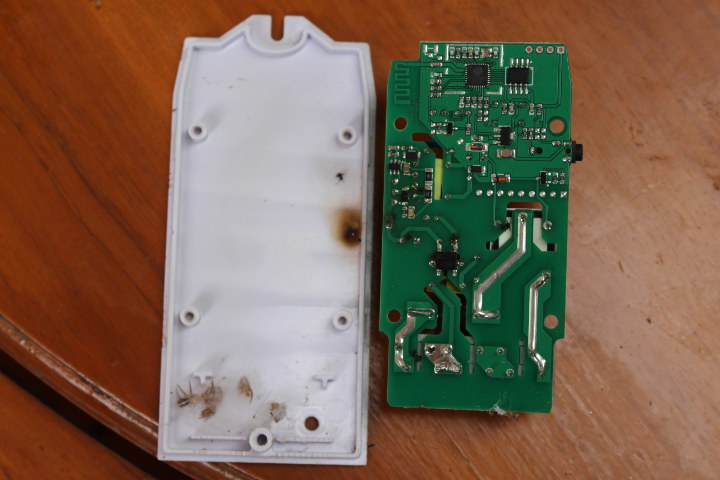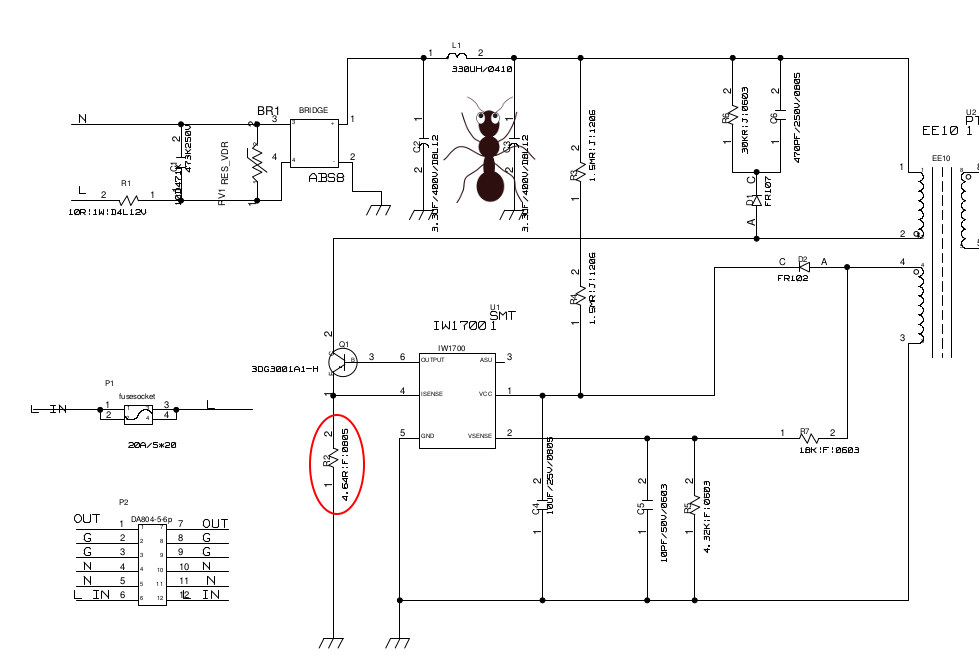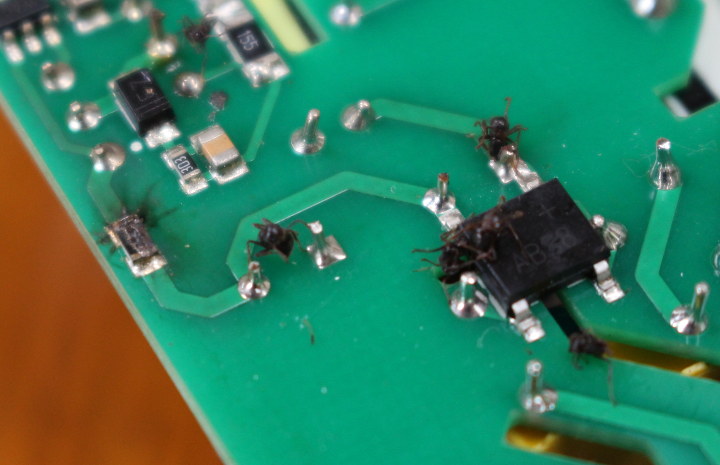Back in November 2016, I connected Sonoff TH16 WiFi switch to my water pump, and since then it worked fairly well, except for the occasional “offline error” in eWelink app, which was usually solved with a power cycle.
But in the last couple of days, I noticed the pump would not start at the set time, and I could not control it using the Android app either, even after turning on and off the power. So I took it out to have a look, and one component indeed burnt.

ITEAD Studio released the schematics in the Wiki, and the dead component is connected to a GND as well as to a transistor, so it must be R2 4.64 Ohm resistor [Corrected from R3 resistor after checking board with multimeter].

But what may have caused this? Resistors burn because too high of a current flows through them. We often have micro power failures here, the type that lasts about one second, so there may have been a spike? But if we look closer, we can see the switch also served as some sort of electrocution chamber for ants and spiders…
 One ant decided to short C3 capacitor, located right next to our dead resistor on the PCB, and another seems to have shorted two pins of the transformer, not to mention all the many ants “connected” to U1 bridge. So I suspect this is the actual reason: my Sonoff switch was destroyed by an ant!
One ant decided to short C3 capacitor, located right next to our dead resistor on the PCB, and another seems to have shorted two pins of the transformer, not to mention all the many ants “connected” to U1 bridge. So I suspect this is the actual reason: my Sonoff switch was destroyed by an ant!
Solutions: use a waterproof case, or maybe more local solution with a DIY case made PVC pipe to make the casing insect-proof. [Update: Also see other solutions in the comments section].

Jean-Luc started CNX Software in 2010 as a part-time endeavor, before quitting his job as a software engineering manager, and starting to write daily news, and reviews full time later in 2011.
Support CNX Software! Donate via cryptocurrencies, become a Patron on Patreon, or purchase goods on Amazon or Aliexpress




